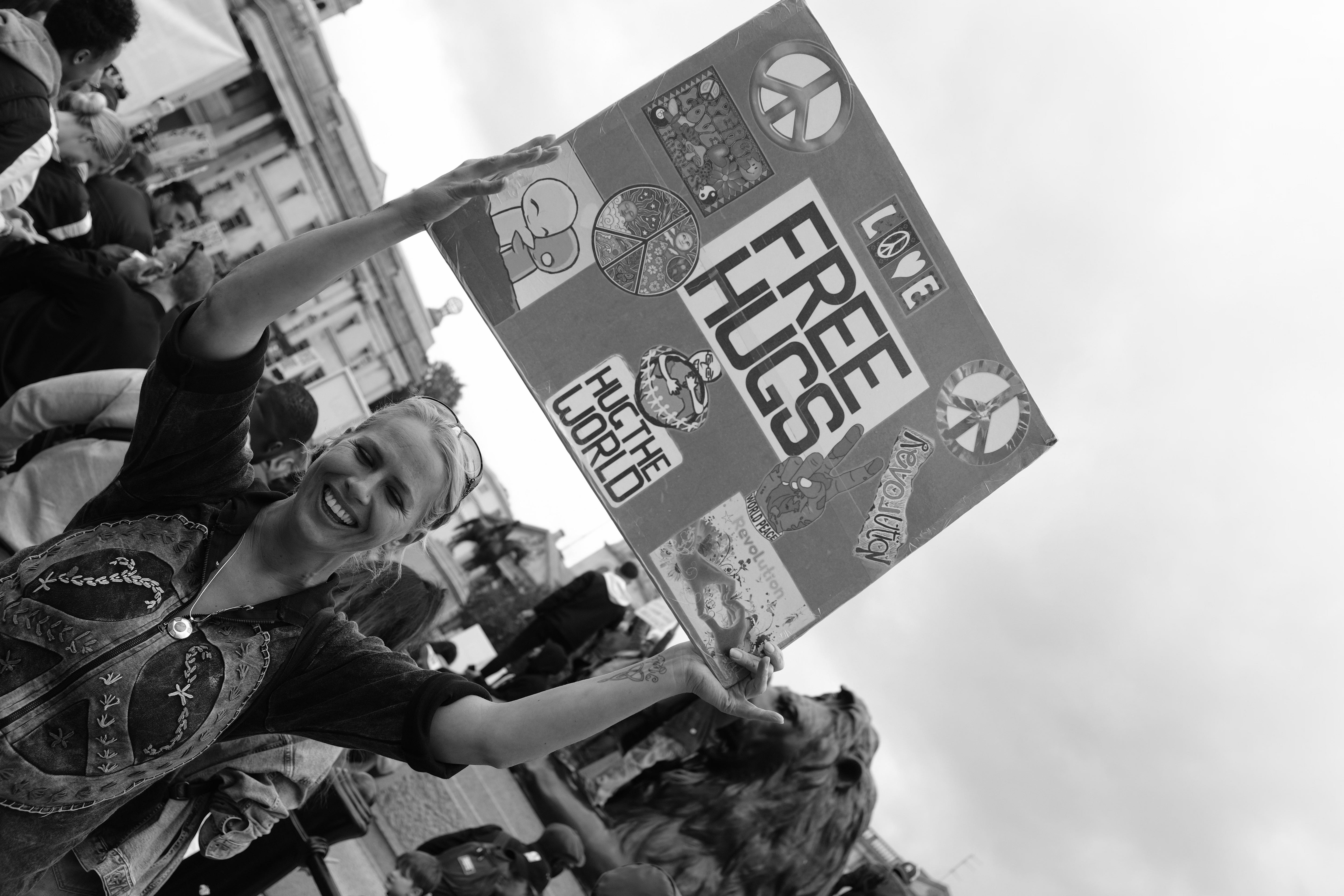"Sacrotherapy" for the psychotherapists
A collection of potentially helpful thoughts for those who relieve human suffering
A number of friends are psychotherapists, and I have had many conversations of a “talk therapy” nature over time. These professional psychologists are caught in the midst of a psychological and information war, and it is not something they trained for. The institution of therapy is itself coming under threat, with demands that its ethical framework be “de-colonised”, in order to accommodate Marxist ideology. We are collectively under assault from trauma-based mind control, and the therapists themselves are being subjected in realtime to the same horrors as their clients.
This is not the time or place for me to conduct an analysis on psychotherapy as an occupation or practise. Rather, I would like to share some thoughts that may be helpful to both therapists and their clients as they grapple with a situation beyond the “mummy and daddy issues” they may feel contracted and competent to engage with. The focus is on locating psychotherapy in a spiritual battle, and recognising its role, benefits, and constraints in relation to that context. I don’t claim to have this 100% right at a first go, so feel free to improve to adapt on these thoughts as you see fit.
The core of psychotherapy deals with innately exoteric matters: our relationship to self, to our parents and children, to our partner(s) present and former, to teachers, and to the wider workplace, friend network, and community. Among these will be both nurturers and abusers. The existence of these is universal, even if the manifestation is unique to each individual.
The therapeutic process inevitably has an esoteric tinge, since it makes the unconscious (and therefore unseen or unacknowledged) into the conscious. This searching through the shadow is a liberating process, as it allows us freedom from unhealthy reflexes, and engages a higher self. The repetitive dramas and generational curses can be tamed, as there is choice over whether to reprise the dysfunctional personal or family pattern.
Both therapist and client may be at different levels of awareness to the existence of occult forces in society. By its nature the esoteric relates to hidden matters or limited perception — easily dismissed as “conspiracy theory” or otherwise irrelevant. In particular, the existence of “silent weapons for quiet wars” is a niche understanding at the time of writing, although that may change soon. It is unlikely either party is in a good place to understand the effects of neuroweapons on personal behaviour, for example.
A therapist is, by design, neither a priest nor a policeman. The institution is not morally didactic, and you won’t be told off for “getting drunk again and arguing with your mother” — or whatever your loathsome vice may be. This gives the therapy relationship an enduring nature, as it allows the client to maintain something approximating to unconditional love for once, albeit in abbreviated form and for a fee. It places no burden on the therapist to be an enlightened exemplar of morality, or a guardsman against turpitude, lest they be an exceedingly rare breed. This locates the burden of moral development where it belongs, which is the client.
Such an approach is, however, a bit of a double-edged sword, especially in the context of a spiritual war. By limiting the presence of “God and Devil” — or at least discussion of divinity — it can leave both parties inadequately defended against wicked schemes and true evil. We can make friends with our own demons, rather than drive them out; moral neutrality is also a collusion with laxness if not carefully examined. The denial of the existence of divine will can leave clients bouncing between self-will (narcissism) and other-will (subjugation). A spirit of compromise means we never “look up”, to discover the sacred way of being “in the world yet not of the world”.
I have heard it said that “spirituality has no place in therapy”, but I cannot agree. I consider it to be an inherently spiritual activity, even if its consideration of holiness and depravity may be attenuated. In the first instance, the mere act of regular turning attention onto ourself, and acknowledging our feelings and wellbeing, is an act of love. The therapy room is a “self-compassion gymnasium”, as the therapist doesn’t abandon you just because you’re immersed in guilt and shame. The identification with rage and fury towards those who sleight us is the first step towards forgiveness. By accepting the therapist’s continued relationship even when we fall, one can practise the welcome of grace.
The “atomic” act in therapy is the therapist having a different perspective and the client allowing an alternative framing or perception to be considered. The client can step away from their reactive belief or behaviour, and instead take on an observational or reflective place by identifying with what the therapist sees and says. It is the antidote to solipsism and absolutism, allowing more possibilities and shades of grey. People who are unaware of their emotions, incapable of naming their feelings, or unable to exercise choice in their response can readily become aggressive and violent. Done right, therapy brings peace to us at an individual level, through acceptance of what cannot change, and change of what cannot be accepted.
There are risks in this approach, too. By taking a more morally neutral place, in order to conserve the essence of the relationship, the therapist may tacitly endorse our remaining in abusive situations that we ought to leave. It has to be this way, else psychotherapy would be an impossible calling: the therapist cannot be responsible for the client’s actions, or carry guilt for their insistent self-sabotage. It is not a spiritual advisory activity: there is wisdom on offer when done well, but it is by construction meant to be worldly in nature. As long as we are content with worldly answers to worldly problems, that is acceptable.
The place where this can come unstuck is at the extremes. Therapy can accommodate “ordinary” wrongs, like sexual abuse, domestic violence, emotional neglect, marital infidelity, or bigoted rejection. The therapist is unlikely to deny that these matters exist, or that the client is being victimised. The challenge is when an “extraordinary” wrong arrives, like with Covid, and both parties are subjected to military-grade psychological warfare and subversion of cultural norms. The difficulty being faced by both the client and therapist is they are now influenced from outside the frame of reference of the therapy relationship, in a manner that exceeds its spiritual “maximum design load”.
Spiritual warfare has many meanings, some of which are beyond the scope of this essay, such as demonic possession. What matters is that there are entities who do not have our best interests at heart, and are willing to weaponise our good nature against us. As with all totalitarian endeavours, a false morality and false logic are offered in order to capture our desire to do what is righteous and true, and misdirect that effort to heinous ends. This is the spiritual subversion, as it takes what is God-given, and replaces it with an impostor ideology that resembles virtue. In essence, we worship a false idol.
At this point, moral neutrality can be lethal. The damage results from those forces having a cosmology that is outside of our “Overton window” of acceptable thought of what awfulness might be possible. For instance, the evil of Covid lockdowns and engineered mental illness is unthinkable to most, which is why they comply. Surely nobody could ever take a social conformity experiment, scale it up to the whole of society, and use it to get us to genocide ourselves? These are unspoken spiritual beliefs that deny the existence of Satanists. Yes, some actively oppose God and all that is life-giving, only to revel in the most deadly and depraved acts — both imaginable and unimaginable.
In ordinary life, it is not the job of a therapist to understand the difference between contract and covenant relationships, or to liberate us from worldly ways. We have to take responsibility for policing our own conduct, and seeking spiritual guidance that aids us to discern moral paths from fallen ones. The narrow path is less trodden for that reason: it takes a lot of work and courage to resist the ease and comfort of the worldly. The therapist draws their authority from the client, not God, and that’s how it is meant to be. It is not a criticism of psychotherapy, merely to observe it deals with the mind and its thoughts; the therapy room is not meant to be a temple.
In order to exist in a secular world, therapy has to exclude God, holiness, worship, divinity, faith, redemption, and the whole ontology of theology from its lexicon. To gain the benefits of the “micro-spiritual” personal development you have to forego prior agreement on the “macro-spiritual”, lest there be no shared universe of discourse. There is always going to be a spiritual boundary where the therapist is “damned if they morally object, and equally damned if they stay silent”. Trying a different (but maybe unwise) approach to your delinquent relative isn’t a ruinous experiment; failing to spot a raging bio-information war is, however, catastrophic.
The militarised context forces situations and experiences onto the therapy participants that is beyond anything foreseen or foreseeable. The inevitable forceful encounter with reality, as ever more people die from Covid bioweapon injections, puts spiritual warfare into play in a realm that conceptually seemed to have human behaviour largely figured out.
There will be an endless litany of professions that failed to see what was happening, possibly by design: historians, media studies, medics, journalists, lawyers, pastors… and psychologists too. Most can retreat to their ivory towers and regroup, but therapists are unique in that they have deep and long-lasting client relationships of a most intimate and trusting nature.
The epic wave of difficult truth to come puts both parties under strains never anticipated or prepared for. How can a therapist consider a client’s grief over vaccine injuries if one of their own relative was murdered with Midazolam in a care home? We are completely “off the map” of how therapy is meant to work, yet must adapt somehow.
Ultimately, there are only spiritual solutions to spiritual problems; indeed, there are only spiritual solutions to worldly matters too, if we wish to rise above the fallen ways of mankind. That psychotherapy is framed as a worldly activity with bounded spiritual aspirations is not a defect, merely a necessary attribute for its establishment and sustenance in the ordinary world. That it may struggle to engage with very extreme acts of malice, including mass psychosis and digital brainwashing, is not a failing of the practitioners or their premise.
There is an innate tension, in that having an adequate pool of therapy practitioners with an accessible audience of clients necessitates a compromise. The ideal is that both parties are willing to “look up” and acknowledge the divine — and its enemies. Inevitably, that ideal is rarely attainable. The degree of that compromise is a trade-off; if we insisted that all therapists are trained in fifth-generation warfare before being let loose on the public, then there would be a minuscule prospect of ever finding assistance with our everyday struggle to overcome our family madness. That limitation would be unhelpful, to say the least.
Inevitably there will be a period of shock and integration as both therapists and their clients come to terms with a radically changed world, and the reality of spiritual warfare (via its poisonous mind and body instantiation). It is too early to suggest how the institution will adapt to an unprecedented crisis of professional psychologists being blindsided by a psychological war. Much of the necessary insight will likely be in existing tomes — be they academic, theological, or philosophical. At the root has to be acceptance that the spiritual is dominant in the long run over all else.
The boundary between psychology and theology is a blurry one, and I am not qualified to comment upon matters like consciousness and metaphysics. What is clear to me is that the applied psychology of psychotherapy has an intrinsic spiritual aspect, and one that has importance and legitimacy. There are also spiritual limits and consequent risks to the practise of therapy in the absence of spiritual awareness in the context of spiritual warfare. A changed and adverse environment — we face pure evil in action — forces us all to “up our game” spiritually.
Therapists are professionally trained to help relieve those suffering from trauma, but have not been prepared work while facing severe psychological and physical harm being inflicted deliberately upon themselves. The best I can see happening is that therapists step up their own supervisory and governance efforts, in order to support each other, and find appropriate boundaries with their clients as genocide becomes the figural subject of conversation. By witnessing the other’s trauma we help them to process it; as such, talk therapy may soon take on value far beyond anything it was conceived of addressing.
Shocking facts will emerge about what has gone down in the last few years, and at first they will not be seen in a paradigm of spiritual warfare. Psychotherapy has an important place to contain societal trauma from bio-information war, as well as heal it. For that activity to be sustainable in a live psychological battlefield, the therapists themselves may require “sacrotherapy” to grasp the spiritual attacks coming from outwith their paradigm. A small number of us as members of the public have been quietly prepared in esoteric combat for several years as part of a military-civilian alliance — and can help light the way.













This is an excellent contribution, as is usual. The psychotherapy profession is indeed in for a very rude awakening, on a par with that which will sweep away the existing medical profession at large in the coming months and years. I doubt either will emerge without complete transformation, for much the same reasons. You appear to be working with the understanding that psychotherapy actually needs to be distinguished from what you call the ‘macro-spiritual’ - and yet at the same time you acknowledge that this is for practical focus on the ‘ordinary’ problems of everyday life, rather than a cleavage in principle between ‘therapy and God’. You state: “The therapist draws their authority from the client, not God, and that’s how it is meant to be. It is not a criticism of psychotherapy, merely to observe it deals with the mind and its thoughts; the therapy room is not meant to be a temple.”
This is pragmatic - but conceptually I think it is a major part of the problem. In essence - the therapist is in a ‘spiritual master’ role. The ideal mentor for any human being is one who is further along the path of self-realisation than the ‘client/apprentice’, one who can guide them to their optimal path for their own self-realisation. Each and every one of us takes turns in these roles in our various life situations - and we always will. It is fundamental to our humanity.
But there aren’t enough specialised spiritual masters. Apparently. The spiritual master does not have to answer the life issues of the client - the spiritual master/therapist simply holds the optimal space for the apprentice/client to find their own unique path. There really is no distance, whatsoever, in principle - between the role of the spiritual master, and the role of the accomplished psychotherapist - they are one and the same thing. This is not a popular notion in most contemporary schools of psychotherapy though - outside certain streams of transpersonal psychotherapy. Having a secular - and profitable - specialised and monetisable industry of spiritual mastery is really a perfect encapsulation of where Western Civilisation has lost its way, into the present unfolding existential crisis.
You suggest that: “The therapist draws their authority from the client, not God, and that’s how it is meant to be. It is not a criticism of psychotherapy, merely to observe it deals with the mind and its thoughts; the therapy room is not meant to be a temple.”
I disagree, this is precisely backwards. What will emerge from the current reconstruction of our civilisation from this genocidal nadir is precisely that: a civilisation that draws its authority from God. This actually removes the concept of ‘authority’ from the therapist altogether. This God is not the God of books, religions and external authorities (that is where we are now) - but the God of each unique inwardly and externally connected individual sovereign citizen. The spiritual master/therapist does not draw authority from the client/ego in the room. The spiritual master/therapist has no intrinsic authority whatsoever. The only authority in the therapy room is the God which expresses itself uniquely between every authentically relating participant - it is the authority of authentic relationship, not a fixed role with a specific identity. In other words - God is authenticity itself, and all authority flows from that authenticity in the therapist-client relationship, rather than being the property of participants of that, or any, particular relationship. ‘Authority’ is a key misnomer that that has driven the current genocidal atrocities being actively carried out by the medical profession globally. When psychotherapy, as a profession, drops entirely the notion of ‘authority’ as part of its description, it will have matured to something worthy of its name.
Near the beginning of this shitshow (November/20) my medical “college “ came after me as I wasn’t playing plandemic. I was in clinic and got a call from a lawyer regarding my noncompliance status and I literally lost it. My anxiety skyrocketed and I dropped to my knees. The staff hustled me into the psychologist’s lair and tried to calm me. Her focus was that I had a “choice”. She couldn’t understand what I was doing wasn’t a “choice”. Her secular understanding of this deeply spiritual path was nil. We fighters never had a “choice”, which is the mantra of the self empowerment movement. Many times we do. In this; this spiritual Armageddon I was commanded by spirit to walk a path. I know you will all understand this.